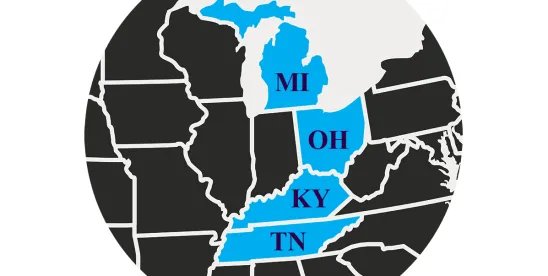In Schwartz v. AR Bhalli, LLC, et al., Case No. 1:25-cv-12, 2025 WL 2599504 (S.D. Ohio Sept. 9, 2025), brought by pro se litigant Michael Schwartz, the United States District Court for the Southern District of Ohio issued a decision that significantly limits the scope of damages available under both the TCPA and Ohio mini TCPA in the default judgment context. The bulk of the Schwartz opinion discusses scope and limitations of Ohio’s consumer protection statutes as applied to unsolicited telephone calls.
Plaintiff asked for nearly $1 million in statutory damages for 27 alleged telemarketing calls under both the TCPA and various provisions of Ohio law including the Ohio’s Consumer Sales Practices Act (“CSPA”) and the Ohio Telephone Solicitation Sales Act (“TSSA”).
Instead, the court granted default judgment against two defendants AR Bhalli, LLC and its principal Atif Bhalli but limited recovery to $5,500.
The court found that only 3 of the 27 calls were sufficiently linked to the named defendants. The remaining 24 calls lacked specific factual allegations tying them to the defendants and appeared to involve unidentified third parties, likely the unserved “John Doe” defendants.
This pretty much shut down the plaintiff’s attempt to hold the defendants responsible for all 27 calls, since his whole theory hinged on guessing that everyone who called was somehow tied to the defendants– based on things like fake caller IDs and made-up names. The court refused to extend liability where the factual record failed to identify specific linkages between the remaining 24 calls and the named parties, rejecting what it viewed as speculative allegations unsupported by particularized facts.
With respect to the court’s damages analysis, the total award was limited to 3 calls that were sufficiently linked to the defendants. Under the TCPA, the court found that these calls involved pre-recorded messages and violated 47 U.S.C. § 227(b) because they were made without consent, not in response to an emergency, and outside any prior business relationship. As a result, the court awarded $500 per call, amounting to $1,500 in total under the TCPA/Count 1 of the complaint. The court declined to award enhanced damages for knowing or willful TCPA violations, finding that Plaintiff had not alleged sufficient facts to support the higher standard –such as proof that the defendants knew the number was registered on the Do Not Call list or that a DNC request had been made for those specific calls.
With respect to the Ohio claims, Plaintiff had asserted 7 counts under the CSPA and TSSA, each seeking $5,000 in statutory damages per call. The court rejected this damages theory outright. Plaintiff relied on Ohio Rev. Code § 1345.09(A), which allows for rescission or recovery of actual economic damages plus up to $5,000 in non-economic damages. However, the court correctly observed that this section applies only where the plaintiff first demonstrates actual economic harm — a condition not met here as Schwartz suffered no economic injury and did not enter into any consumer transaction.
Instead, the court turned to Ohio Rev. Code § 1345.09(B), which authorizes recovery of statutory damages of $200 per violation even absent economic loss. This provision — unlike subsection (A) — does not require proof of actual harm, but it also does not permit stacking $5,000 penalties in the absence of a compensable injury. The court permitted recovery of $200 for each of 6 viable violations alleged across 3 calls, resulting in $3,600 in statutory damages under Ohio law. An additional $400 was awarded for a separate violation alleged in one count that applied only to 2 of the calls.
In total, the court (correctly) awarded $5,500 — $1,500 under the TCPA and $4,000 under Ohio state law.
This ruling indicates that the Southern District of Ohio is not going to uphold inflated statutory damages under the CSPA or TSSA when the claims are vague and the plaintiff attempts to misapply state statutes.
Also the opinion contains a subtle but important observation regarding the legal sufficiency of pleadings under Rule 4. Although the plaintiff utilized a virtual mailbox located at a Staples store in Cincinnati, the court declined to invalidate service or dismiss the case for failure to provide a residential address. The court noted the absence of controlling authority defining the term “address” in Rule 4(a)(1)(C), and found Plaintiff’s USPS Form 1583 sufficient to maintain standing for mail delivery purposes. However, the court emphasized that substitute service — such as that performed on a co-occupant of the defendant’s listed address must still comply strictly with Rule 4(e), and plaintiff’s updated proof of service ended up being key to keeping the default in place.
So while plaintiff obtained a default judgment, the ruling shows that at least some courts may be skeptical of big damages claims in TCPA/Mini TCPA cases especially when plaintiffs attempt to multiply recovery through speculative agency theories or overly expansive readings of state consumer protection statutes. The judgment in Schwartz underscores that even in default cases, courts may (and should) expect liability and damages to be supported by facts.
Really solid work by the Ohio court — with a thoughtful analysis and evaluation of damages under both federal and state law.




 />i
/>i

